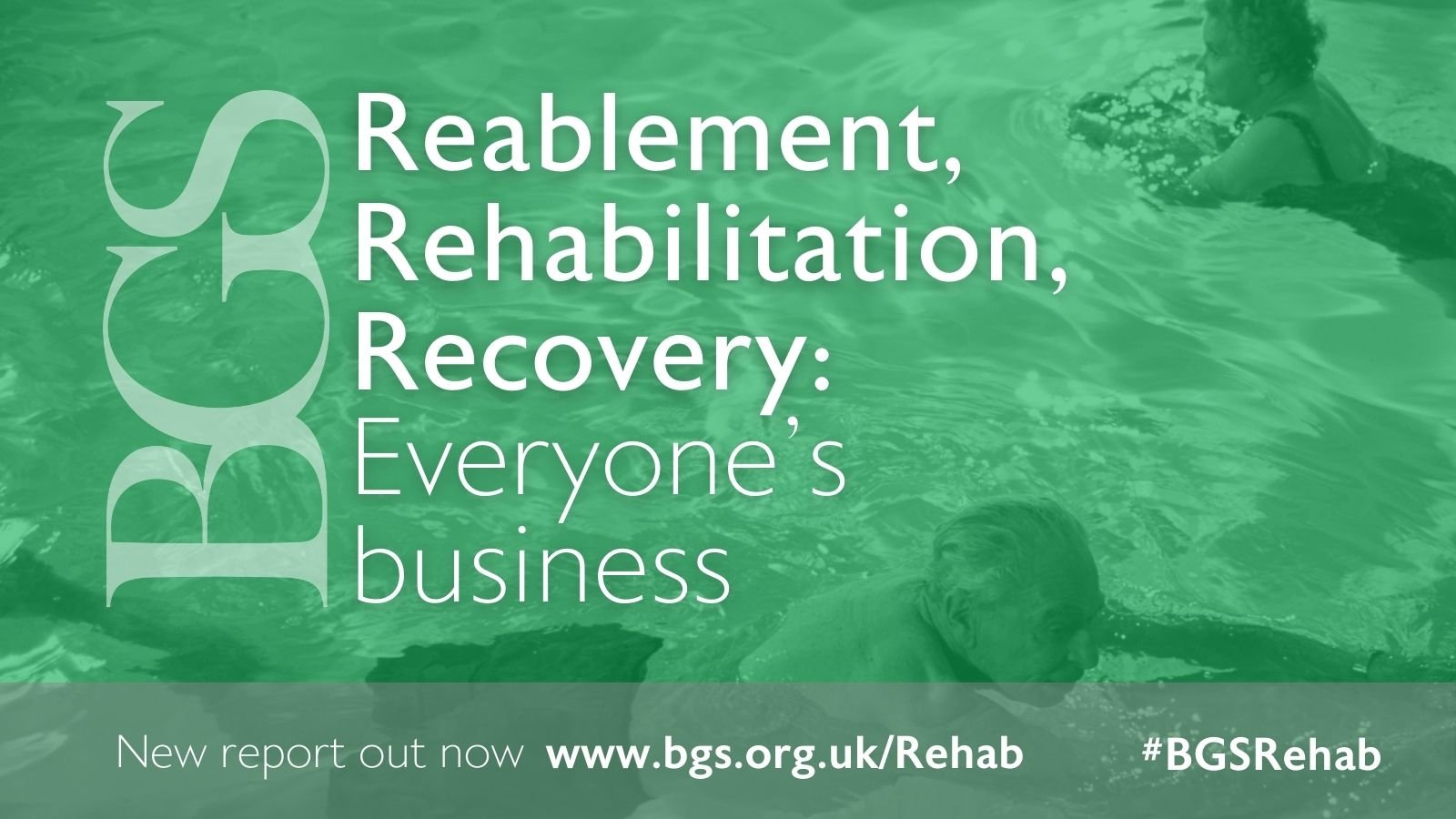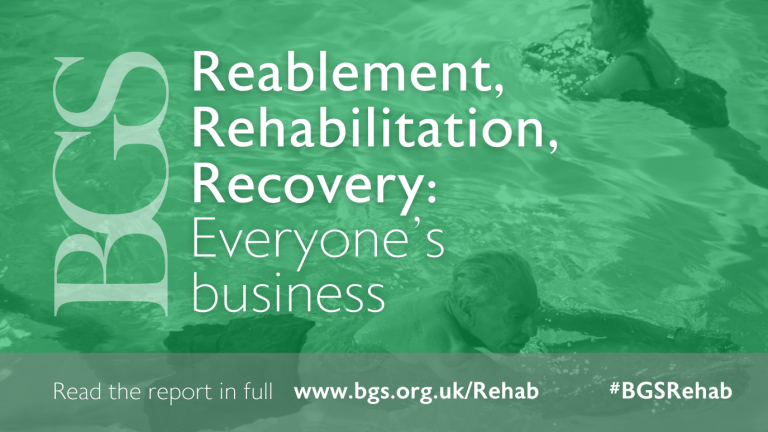Today the British Geriatrics Society (BGS) published ‘Reablement, Rehabilitation, Recovery: Everyone’s Business’. This report focuses on rehabilitation for older people experiencing frailty or loss of function because of acute illness or exacerbation of a chronic health condition. It highlights variation in the provision of rehabilitation for older people across the UK due to a lack of services, restrictive access criteria, and limited availability of staff, equipment and space. This is despite evidence that older people, and the NHS, will experience significant benefits from reablement and rehabilitation.
Well-designed reablement and rehabilitation services support older people to recover from periods of ill health, enabling them to live independently for longer and helping to reduce demand for emergency care and long-term support. Health and care systems across the UK must act urgently to address inequities restricting older people’s access to reablement and rehabilitation services. These services are an essential component of virtually all health and care for older people, as highlighted in the BGS Blueprint. Investment in such services not only benefits individuals but also saves money elsewhere in the system by reducing the need for further care and support.
Rehabilitation should be integral to care plans in all settings, including long term care, and should start as soon as possible after the onset of illness. Timely rehabilitation improves older people’s lives, reduces readmission to hospital and avoids premature long-term care. Effective rehabilitation services for older people should involve health and social care professionals from across the multidisciplinary team and be delivered across acute, primary care, community and social care settings. The business case for providing rehabilitation for older people is compelling.
The BGS report published today sets out what high-quality rehabilitation looks like and how it should be delivered. Evidence and good practice are highlighted, myths challenged, and tips provided for senior decision makers and health and care professionals. The report offers examples from across the UK of rehabilitation interventions that make a difference to older people’s recovery. Good-quality age-attuned rehabilitation for older people is a critical investment if we are to meet the needs of our ageing population.
It is expected the number of people over the age of 85 in the UK will double by 2045. In the current population, up to half of those over the age of 85 live with frailty, as do one in ten over the age of 65.1 The associated costs are £5.8 billion per year2. Frailty is not an inevitable part of ageing and putting in place measures to prevent or delay its onset or progression should be a priority for every health and care system across the UK. Access to rehabilitation is a fundamental aspect of the management of frailty. And as part of workforce and service planning for the needs of current and future populations, it is vital that local health and care systems invest in rehabilitation.
Professor Adam Gordon, President of the British Geriatrics Society, said:
Our report sets out bold ambitions for rehabilitation services for older people. We are not there now, but over the next five to ten years, systems across the UK should review current provision at a local level to ensure they are delivering effective rehabilitation to the maximum number of older people. And nationally we need a workforce plan to deliver this rehabilitation vision.”
Professor Anne Hendry, Lead Author of the Report, said:
There is compelling evidence that rehabilitation improves the lives of older people and prevents, delays or reduces the costs for future care. Yet too many older people miss out on the opportunity to recover their independence after illness. Rehabilitation is everyone’s business – we need to work together across health and social care disciplines, and with carers and community and voluntary sector partners to realise the right to rehabilitation for every older person.”
John Cowman, Chief Executive of the Chartered Society of Physiotherapy, said:
We fully support the recommendations set out in the BGS report today. They clearly outline what health and care systems must do to deliver effective and integrated rehabilitation as a right for all older people, wherever and whenever they need it. Rehabilitation is transformative and is vital to support people to make full recoveries and live independent lives. A chronic lack of prioritisation and funding over many years has resulted in these services struggling to deliver the quality of care patients need and deserve. This is having a detrimental impact on dedicated and skilled health workers who are working under enormous pressure with limited resources. The NHS must prioritise prevention and rehabilitation services as they are not only better for people’s health, but also lessen people’s reliance on services, easing pressures and reducing costs throughout the whole system.”
Steve Ford, Chief Executive Officer of the Royal College of Occupational Therapists, said:
The Royal College of Occupational Therapists is very pleased to support this new report. Rehabilitation, delivered by multi-disciplinary teams including occupational therapists, has a life-changing impact on the health and independence of older people, but it is currently under-resourced and under-valued. We join BGS in calling for increased investment in high-quality rehabilitation for all who need it, both for the health of the population and the sustainability of our health system.”

